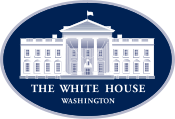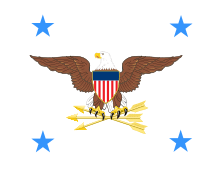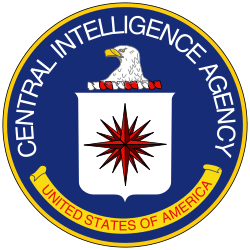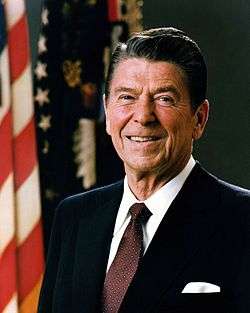Frank Carlucci
| Frank Carlucci | |
|---|---|
|
| |
| 16th United States Secretary of Defense | |
|
In office November 23, 1987 – January 20, 1989 | |
| President | Ronald Reagan |
| Deputy | William Taft |
| Preceded by | Caspar Weinberger |
| Succeeded by | Dick Cheney |
| 15th National Security Advisor | |
|
In office December 2, 1986 – November 23, 1987 | |
| President | Ronald Reagan |
| Deputy | Peter Rodman |
| Preceded by | John Poindexter |
| Succeeded by | Colin Powell |
| 18th United States Deputy Secretary of Defense | |
|
In office February 4, 1981 – December 31, 1982 | |
| President | Ronald Reagan |
| Preceded by | Graham Claytor |
| Succeeded by | Paul Thayer |
| 13th Deputy Director of the Central Intelligence Agency | |
|
In office February 5, 1978 – February 4, 1981 | |
| President | Ronald Reagan |
| Preceded by | John Blake |
| Succeeded by | Bobby Inman |
| United States Ambassador to Portugal | |
|
In office January 24, 1975 – February 5, 1978 | |
| President | Gerald Ford |
| Preceded by | Stuart Scott |
| Succeeded by | Richard Bloomfield |
| 4th Director of the Office of Economic Opportunity | |
|
In office January 1971 – December 1972 | |
| President | Richard Nixon |
| Preceded by | Donald Rumsfeld |
| Succeeded by | Philip Sanchez |
| Personal details | |
| Born |
Frank Charles Carlucci III October 18, 1930 Scranton, Pennsylvania, U.S. |
| Political party | Republican |
| Alma mater |
Princeton University Harvard University |
| Religion | Roman Catholicism |
| Military service | |
| Allegiance |
|
| Service/branch |
|
| Years of service | 1952–1954 |
Frank Charles Carlucci III (born October 18, 1930) served as the United States Secretary of Defense from 1987 to 1989 in the administration of President Ronald Reagan. Prior to that, Carlucci served in a variety of senior-level governmental positions, including Director of the Office of Economic Opportunity in the Richard Nixon administration, Deputy Director of the CIA in the Jimmy Carter administration, and Deputy Secretary of Defense and National Security Advisor in the Reagan administration.
Early life and career
Carlucci was born in Scranton, Pennsylvania, the son of Roxanne (née Bacon) and Frank Charles Carlucci, Jr., an insurance broker. His father was of Italian and Swiss descent.[1] He graduated from Wyoming Seminary in 1948 and Princeton University in 1952, where he roomed with Donald Rumsfeld, and attended Harvard Business School for an MBA in 1954-55. He was a Naval officer from 1952-54. He joined the Foreign Service, working for the State Department from 1956 until 1969. In 1961 he participated in a CIA mission to Congo.
According to James Schlesinger, following the assassination of Patrice Lumumba, the new Prime Minister of the Congo, Cyrille Adoula, began a meeting with President John F. Kennedy with the question "Ou est Carlucci?" (Where is Carlucci?), since Carlucci was suspected to be one of the CIA officials who oversaw the murder of Lumumba. Kennedy first responded "Who the hell is Carlucci?'" and then sent Dean Rusk to find him.[2]
In the year 2000, a film called Lumumba portrayed him as being involved during his service in Congo in the murder of Congolese independence leader Patrice Lumumba. Carlucci furiously denied the charges, and successfully went to court to prevent being named in the film when it was released in the United States.
Administration

During the early 1970s, Carlucci became Donald Rumsfeld's protege as Rumsfeld showed him the ropes. In 1969, when President Nixon persuaded Rumsfeld to leave his congressional seat to become director of the Office of Economic Opportunity (OEO), the agency created by R. Sargent Shriver to fight President Johnson's War on Poverty, Rumsfeld had Carlucci transferred to OEO from the State Department to head up the Community Action Program. Carlucci was Undersecretary of Health, Education and Welfare when Caspar Weinberger was secretary during the Nixon administration.
Carlucci became Ambassador to Portugal, and served in this position from 1974 until 1977. He is still very fondly remembered in Portugal among the winners of the November 25 Coup d'État.[3] The Carlucci American International School of Lisbon is named for him.
Carlucci was Deputy Director of the CIA from 1978–1981, under CIA Director Stansfield Turner.
Carlucci was deputy defense secretary from 1981 until 1983,[4] national security advisor from 1986 until 1987, and defense secretary in 1987, following the resignation of Weinberger, his nomination by President Ronald Reagan and his confirmation in the Senate by a vote of 91 to 1. He was reportedly less hard-line in policies toward the Soviet Union than Weinberger. He served as Secretary of Defense until the end of the Reagan administration on January 20, 1989.
On January 5, 2006, he participated in a meeting at the White House of former Secretaries of Defense and State to discuss United States foreign policy with Bush administration officials.
Post-Administration work
Business
Carlucci served as chairman of the Carlyle Group from 1992–2003, and chairman emeritus until 2005. He also has business interests in the following companies: General Dynamics, Westinghouse, Ashland Oil, Neurogen, CB Commercial Real Estate, Nortel, BDM International, Quaker Oats, and Kaman. Carlucci is Chairman of Environ USA, and former director of Wackenhut. He is a co-founder and senior member of the Frontier Group, a private equity investment firm co-founded by David Robb (formerly with The Carlyle Group) and to which Sanford McDonnell and Norm Augustine are senior advisors. Frontier Group is the principal investor in Utopia Residences (http://www.utopiaresidences.com), which has ordered the Utopia ocean liner [see "A Cruise That Never Ends". http://www.forbes.com/2009/12/01/asia-biggest-cruise-ship-lifestyle-travel-samsung.html?feed=rss_asia. Retrieved 2009-12-21.]. Carlucci is an Advisory board member of G2 Satellite Solutions and the Chairman Emeritus of Nortel Networks.
Organizations
He is affiliated with the Project for the New American Century (PNAC), a conservative think tank. He formerly sat on the Board of Directors of the Middle East Policy Council. He is Chairman Emeritus of the US-Taiwan Business Council . Carlucci is a member of the Board of Trustees of the RAND Corporation and founding co-chair of the Advisory Board for RAND's Center for Middle East Public Policy. He is also a member of the Honorary Board of the Drug Policy Alliance, a group which advocates drug legalization.[5]
Controversy
Involvement during the Congo Crisis
Patrice Lumumba, the first prime minister of independent Congo, was executed in January 1961 during the Congo Crisis. During that time, Carlucci was the second secretary at the US embassy in the Congo and a covert CIA agent. According to subsequently released US government documents, President Dwight Eisenhower ordered the CIA to murder Lumumba.[6][7]
Minutes of an August 1960 National Security Council meeting confirm that Eisenhower told CIA chief Allen Dulles to "eliminate" the Congolese leader.[8] The official note taker, Robert H. Johnson, testified to this before the Senate Intelligence Committee in 1975.[9]
During a broadcast on HBO of the film Lumumba, directed by Raoul Peck, Carlucci's name was bleeped and removed from the credits due to the threat of a lawsuit. Carlucci's lawyers threatened Peck and the distribution company, Zeitgeist Films, with legal action if his name was not bleeped out of a scene that shows American Ambassador Clare Timberlake and Carlucci, along with Belgian and Congolese officials, plotting Lumumba's assassination.[10]
References
- ↑ http://www.scoop.co.nz/stories/HL0506/S00418.htm
- ↑ Shorrock, Tim (March 14, 2002). "Company Man". The Nation. Retrieved May 3, 2009.
- ↑ Frank Carlucci parecia "um típico mafioso italiano", João Pedro Henriques, 13 de Novembro 2008
- ↑ SecDef stories - Frank C. Carlucci, Department of Defense
- ↑ DPA 2010 Annual Report, p. 22.
- ↑ David Akerman (October 21, 2000). "Who Killed Lumumba?". BBC.
- ↑ Michael S. Mayer (2009). The Eisenhower Years. Infobase Publishing. p. 44. ISBN 978-0-8160-5387-2.
- ↑ Kettle, Martin (August 10, 2000). "President 'ordered murder' of Congo leader". The Guardian. London.
- ↑ https://books.google.com/books?id=bTdlU4yGB6YC&pg=PA78&lpg=PA78&dq=August+1960+National+Security+Council+meeting+lumumba&source=bl&hl=en&oi=book_result&ct=result&resnum=5
- ↑ http://www.wsws.org/articles/2002/mar2002/carl-m15.shtml
External links
| Political offices | ||
|---|---|---|
| Preceded by Donald Rumsfeld |
Director of the Office of Economic Opportunity 1971–1972 |
Succeeded by Philip Sanchez |
| Preceded by Graham Claytor |
United States Deputy Secretary of Defense 1981–1983 |
Succeeded by Paul Thayer |
| Preceded by John Poindexter |
National Security Advisor 1986–1987 |
Succeeded by Colin Powell |
| Preceded by Caspar Weinberger |
United States Secretary of Defense 1987–1989 |
Succeeded by Dick Cheney |
| Diplomatic posts | ||
| Preceded by Stuart Scott |
United States Ambassador to Portugal 1975–1978 |
Succeeded by Richard Bloomfield |
| Government offices | ||
| Preceded by John Blake |
Deputy Director of the Central Intelligence Agency 1978–1981 |
Succeeded by Bobby Inman |




